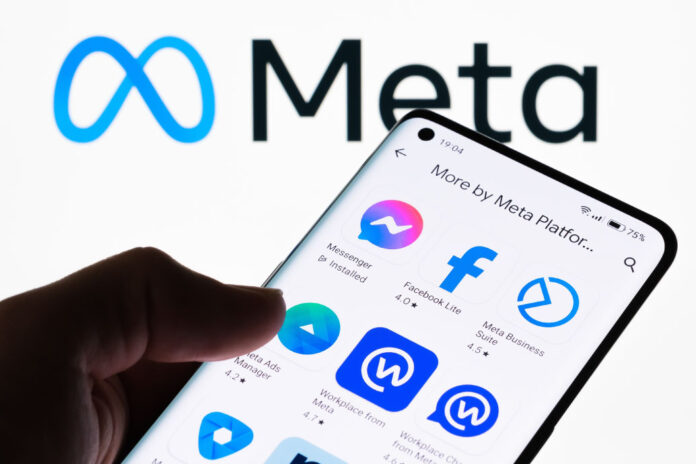Em 2021, Mark Zuckerberg, CEO e fundador do Facebook, surpreendeu o mundo ao anunciar a mudança de nome de sua empresa para Meta, tendo como principal objetivo passar a explorar esse novo mundo digital do metaverso. Na época, o conceito e a tecnologia foi apresentada ao público como uma das iniciativas mais poderosas e promissoras para o futuro, sendo capaz de gerar ambientes virtuais alternativos e imersivos, onde as pessoas podem interagir e realizar qualquer atividade .
Passado alguns anos desde o boom inicial, o metaverso deixou de ser uma ideia futurista para se tornar uma realidade em construção. Apesar de ainda não ter alcançado o sucesso inicial esperado, o recurso hoje já abre portas para experimentos e iniciativas interessantes dentro dos mundos digitais.
Uma das áreas que têm explorado bem a tecnologia desde então é o marketing. Isso porque, marcas parecem ter percebido o potencial do metaverso para criar conexões mais profundas e interativas com os consumidores. Plataformas como Roblox e Decentraland hoje podem ser vistas como laboratórios vivos onde essas estratégias estão ganhando forma, comprovando que estes mundos paralelos podem ser uma alternativa interessante para aproximar o público de sua marca.
Todo esse potencial acaba ainda mais potencializado graças ao auxílio de tecnologias adjacentes, como é o caso da inteligência artificial. Por meio da integração com a IA, marcas começaram a perceber o metaverso como uma ferramenta interessante para a conquista de engajamento e novas receitas.
Diante deste cenário dúbio caracterizado pelo enorme potencial, ao mesmo tempo, que pouco explorado, venho compartilhar algumas tendências-chave e desafios que irão acompanhar o desenvolvimento do metaverso para 2025, com foco em auxiliar na forma com que profissionais de marketing podem se preparar para essa nova era.
- Experiências imersivas e interativas
A imersão é a alma do Metaverso. Hoje, marcas como a Nike, com sua plataforma NIKELAND, inserida dentro do Roblox, já demonstram o poder dessa abordagem. A ferramenta vai além de um mero showroom virtual; consolidando um mundo onde os usuários podem criar avatares e interagir com a marca esportiva de forma lúdica, fortalecendo a conexão emocional do usuário com os produtos. A IA, por sua vez, potencializa essas experiências, permitindo a criação de avatares realistas com movimentos e expressões naturais, além de NPCs (personagens não-jogáveis) inteligentes que proporcionam interações personalizadas.
- Integração com o mundo real, facilitada pela IA
A convergência entre o físico e o digital é uma tendência forte para 2025, e o metaverso pode ser uma solução prática a esse propósito. A Forever 21, por exemplo, hoje apresenta uma loja no metaverso que espelha sua coleção física para dentro do digital. Essa estratégia omnichannel oferece uma experiência de compra inovadora e também impulsiona as vendas, tanto online quanto offline. A IA novamente entra em cena ao analisar dados do mundo real, como preferências de compra e comportamento do consumidor, a fim de personalizar as ofertas e experiências.
- Hiperpersonalização com IA
Utilizando novamente um trabalho prático como exemplo, a Coca-Cola recentemente utilizou NFTs para desbloquear experiências personalizadas, como acesso a eventos exclusivos e itens virtuais colecionáveis. Essa estratégia fortalece a fidelização do cliente e ajuda a criar um senso de comunidade em torno da marca. Por meio de sua capacidade de analisar grandes volumes de dados, a IA passa a ser crucial nesse meio para oferecer experiências personalizadas em escala, prevendo as necessidades e desejos dos usuários no Metaverso.
- Oportunidades de monetização
Hoje, o Metaverso representa ainda uma nova forma de monetização para negócios. Marcas de luxo, como Balenciaga e Louis Vuitton, já comercializam roupas e acessórios virtuais, gerando novas fontes de receita e atingindo um público mais jovem e conectado.
- Metaverso como canal de atendimento com IA Conversacional
Imagine resolver suas dúvidas com um assistente virtual em um ambiente 3D imersivo. Essa é mais uma das usabilidades possíveis dentro do metaverso com foco no vínculo da marca e o cliente. Além disso, graças ao uso da IA, as empresas poderão promover interações mais naturais e personalizadas, além de disponíveis 24/7, aprimorando a eficiência e a satisfação do cliente.


